#twitter keeps getting worse and worse
Explore tagged Tumblr posts
Text
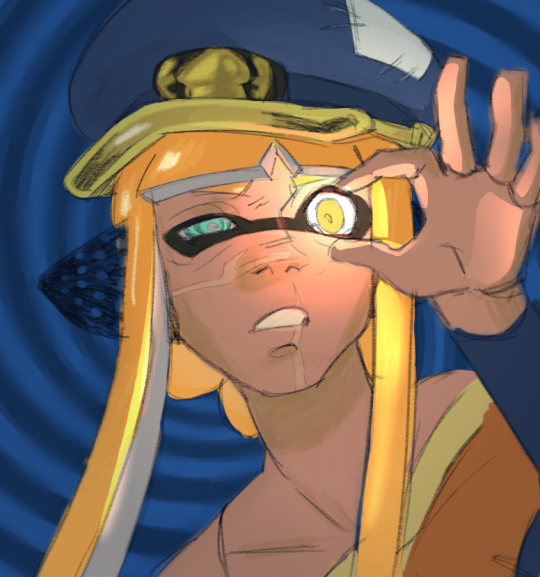
"Functional" eye
#splatoon#splatoon 3#splatoon fanart#captain 3#inkling#agent 3#inkling girl#I am back#twitter keeps getting worse and worse#so does tiktok#this place is pretty peaceful tbh#drew my wife my babygirl my love my honey my sweetie my everything my stinky
533 notes
·
View notes
Text
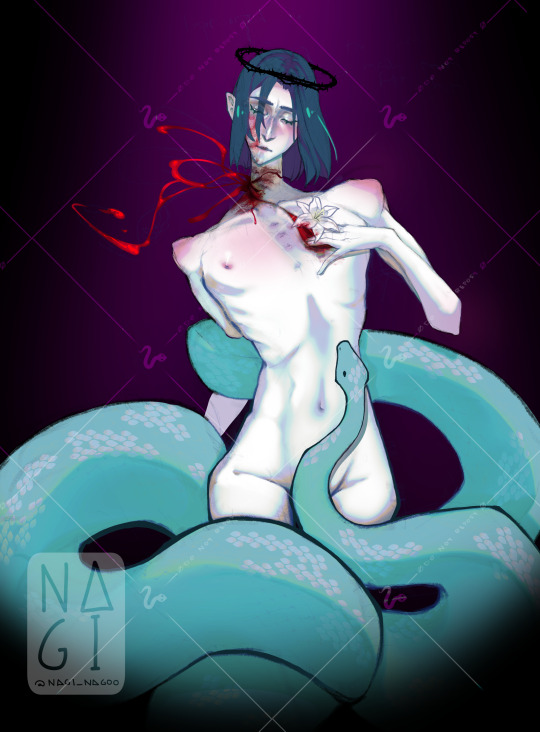
He's a Prince but the crown they gave him is shitty at least his ribbon is a nice bright red.
works through my religious trauma by inflicting it onto snape in vaguely erotic ways
#severus snape#pro severus snape#snape fandom#harry potter#hp#snape love#snape#young snape#snapedom#professor snape#severus art#severus#snape art#pro snape#snape community#snapetober#snapetober 2024#snape content#nagi nyart#this one was an fucking pain to post onto twitter lemme tell u. it keeps getting weirdly compressed everywhere.#idk. in classic fashion this looks infinitely worse than it did as a sketch i am in the trenches#idk which snapetober list is the one ppl are using but this one is maybe a late “haunt” prompt i suppose
455 notes
·
View notes
Text
tumblr too will sell all user data to A/I fuckers. the toggle is apparently just to tell the techbros i dont want it, they "believe" they will "honor" that, like techbros ever honored anything but money.
sharing my art and connecting with people has been, literally, whats kept me alive through my darkest days.
i do not want it stolen, mangled and used to generate more money for people that already have more money than god.
creative labors of love that we share with people for free, to connect with people, to find joy in art and to bring joy to others, only for it to be ripped from you against your will, stolen, mangled, twisted into an algorythm just so some disgustingly rich guys gain more money.
and you lagerly cant do anything against it, the things you have ever posted anywhere, be it written or drawn, already taken without your consent.
it makes me feel ill.
right now, im questioning my will to be an artist.
to live.
#ganondoodles talks#personal#mostly copied over from my twitter#i know i know you cant give up fighting blah blah#i am so tired#i am so tired of trying to force myself to keep up hope for a better world while everything progessively gets worse and worse#i have wasted my life honing a skill that i am unable to share the results of#bc of greedy ghouls wanting to destroy the world just to have more currency that ultimately is nothing but a made up lie#it is late- i am tired- not feeling well- it all may heighten the feelings of hopelessnes#but given the state of the world#i dont know how much all that really has influence on my mood#how much deeper is there to sink? there has to be a bottom and i think we have reached it
128 notes
·
View notes
Text
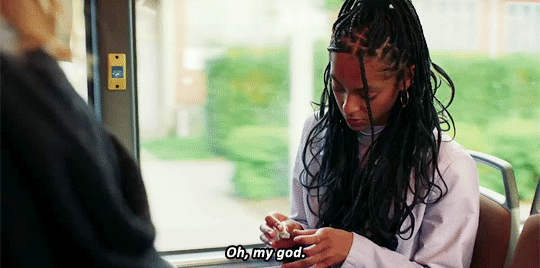
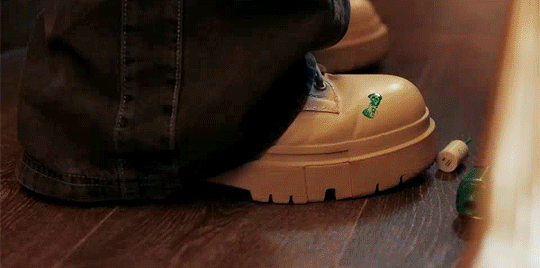
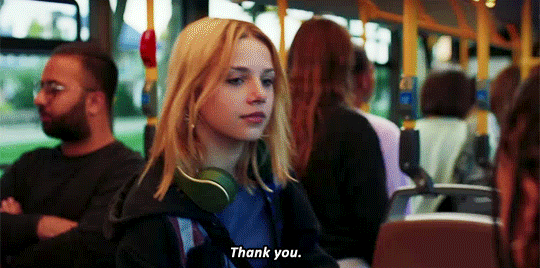
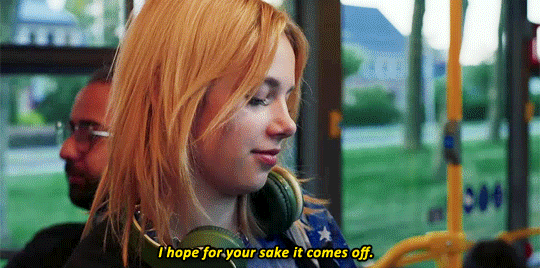
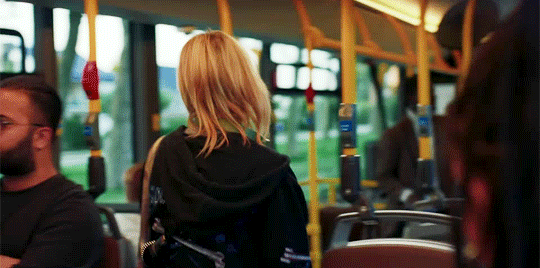
wtFOCK - 7x01
#wtfockedit#wtfock#anais davis#bobbie de bruyn#laura bekaert#nell cattrysse#wtfock 7x01#wtfock spoilers#anobbie#femslash related stuff#meet-cute :>#I'm back! worse than ever#get ready for more random pauses and unanswered asks :x#this time with no vacation as the reason#but I saw on my phone that I'd spent MORE than 56 hours on twitter this last week#that's just...I can't keep that doing that#so I'll check in on things routinely but maybe not to the tune of 8 hours a day#anyway I was somewhat intrigued at the start of this ep and then unsure about the Bad Girl trope#though I was like well these poor skams how many different teen stories can they tell#but the citrus twist at the end???#I cackled and am now quite curious to see how this plays out#I guess they got at least one more story#asks are open btw but I'm still catching up on:#TMS; WOT; boiling point; khufiya; gen v; everything now; usher; while the men are away; and neon#I'm caught up on invasion and doom patrol and general hospital though lol
207 notes
·
View notes
Text
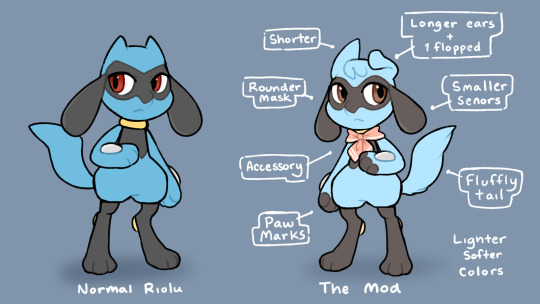
A silly guide on how I draw normal Riolu vs My sona
#Riolu#Doodle#The Mod#Do not use my sona thanks#Just wanted to give a silly doodle while I ramble#I admittedly made the last few daily pieces as basically a progression of my eyes for the last ~1.5 years#Keeping up with everything became harder because of my eyes#I only talked about this briefly on my main twitter#I was diagnosed with keratoconus#My eyes got worse over time#so I was squinting constantly and would get headaches trying to focus my eyes to draw or play half the games I did#it sucked. I slept a lot to get rid of pain and I felt like I couldnt do my normal work so it kept piling#I had surgery + got RGP Contacts to help me see normally this year tho!#So I can finally get my shit together and have been slowly trying to get everything going/sorted#Just to like... explain where I disappeared to#Ofc Its hard to do anything art or reading without my contacts in#tbh i didnt even know until December lol so it went for awhile and thought my prescription went from good to shit#so i took a minor break from social media to keep where my eyes used online to mainly discord
185 notes
·
View notes
Note
Hihihiii
I noticed in your past art its very clean and tidy but your more recent art its pretty loose and explorative in color and shape!! Was it an active journey for you to make that transition or did your style just naturally evolve that way? If it's the former how'd you get over being so clean for a looser style?
Thank you takin' thee time to read this!!!
Hiiii tbqh I think I started loathing the process enough for me to start getting ‘messier’ and less precise with my strokes and color choices if that makes sense 😭 over the past few years I graduated college and got a job which drained the living hell out of my energy, so ig it might have just put me in the mentality of ‘I’m spending way too much time thinking abt this shit’ and then drawing became a lot more fun… and for me that’s what rly matters if it ain’t a comm or something that’s GOTTA be cleaner 🤔
#ask#I’m actually a little self conscious abt my style development😭#I’m happy to have a job but sometimes I feel like what it did to me made my art ‘worse’#if that makes sense#I think some of it is just numbers on Twitter messing w/ me since the site is exploding#but I can’t help but think it’s something to do w/ me too 😭#but also I’m an OC artist on social media…. so what can you do#still grateful for any love my work gets too bc while I don’t rly keep it ‘clean’ anymore#I do put a love of thought and time behind my concepts and comps and designs so it means a lot😭
29 notes
·
View notes
Text
was genuinely not expecting that miku drawing to blow up like it did, I'm glad people like it so much! even if it makes me anxious aaaaaa

#leafie speaks#I'm not used to this I'm gonna have imposter syndrome now lmao#it's even worse on twitter it keeps getting qrt's from private accounts aaaaa#anyway hi new followers I hope u like furry art and plants
23 notes
·
View notes
Note
new casey podcast have you seen it
https://m.youtube.com/watch?si=ye8wNfrvaPDjtpDV&v=IuwZN6aP8sg&feature=youtu.be
(link to the podcast) yeah I did, cheers!
there's not that much 'new information' per se within this podcast, though there's a bunch of nice tidbits about teenage casey. what stood out to me is how the framing of his journey to becoming a racer is... well, it's kinda new? it's not exactly surprising, because you could get a lot of this stuff from reading between the lines in his autobiography. the question of 'is this your dream or your parents' dream' is a very common one with athletes, and it's often a thin line... but, y'know, this podcast interview in particular is quite a noticeable shift in how casey himself talks about this issue. it's a shift in how he portrays his 'dream' of becoming a professional rider back when he was formulating his autobiography, versus how he's answering questions in this episode. his autobiography isn't free from criticism of his parents - but casey is always stressing his own desire to race. so you do get stuff like this (from the autobiography):
At this point things were getting serious. Dad used to say, 'If you want to become World Champion you can't be that much better than local competition,' holding his finger and thumb an inch apart. 'You have to be this much better,' he'd say, holding his arms wide open. Dad confirms this feeling still today: 'I know it's a harsh way to look at things but that's the difference between a champion and the rest. Just look at the careers of Dani Pedrosa and Jorge Lorenzo. Dani had Alberto Puig and Jorge had his old man, both of them hard as nails. If you want to make it to the top I think it takes somebody with an unforgiving view on life to help get you there. So I said those things to Casey, particularly when we went to the UK, because to keep moving up a level he couldn't just be happy with winning a race. If he wasn't winning by a margin that represented his maximum performance then he wasn't showing people how much better he was than the rest.' There's no denying that Dani, Jorge and I became successful with that kind of upbringing and sometimes you probably do need it. As far as I'm concerned Alberto was nowhere near as tough on Dani as my dad was on me or Jorge's dad was on him. That kind of intensity and expectation puts a lot of extra pressure on a father-son relationship that isn't always healthy. We definitely had our moments and there were a few major blow-ups to come. But at the time, rightly or wrongly, it was proving to be a good system for us and I was eager to continue impressing my dad and others with my performances on the track.
(quick reminder, jorge's review of his father's style of parenting was describing him as "a kind of hitler")
but in general the emphasis is very much on how much casey enjoyed racing, on how single-minded casey was when it came to racing. he might have been isolated by his racing (again this is from the autobiography, in the context of discussing being bullied by kids in school until he got 'protection' from his dirt track friends):
School life was a whole lot better after that but I still hated it. All my real friends were from dirt-track; they were the only people I had anything in common with.
and he's talked about how other parents misinterpreted his shyness as him not actually wanting to race, which meant they were judging casey's parents as a result (autobiography):
Mum tells me that the other parents thought she and Dad were awful because I cried as I lined up on the start line. She remembers: 'I was putting his gloves on his hands and pushing his helmet over his head. The thing was, I knew Casey wasn't crying because he didn't want to ride or because he was scared. He just didn't like the attention of being stared at by all these people!'
but like. overall racing for him was still something he portrayed as a very positive aspect of his childhood. something he always clung onto, something that was his choice to pursue
so... let's play compare and contrast with some specific passages of the autobiography and this podcast, you decide for yourself. take this from his autobiography:
After I started winning more times than not, and it was obvious my passion for bikes wasn't wavering, Mum and Dad decided that seeking out sponsors could be a great idea to help offset some of the costs of travelling to meets and keeping the bikes in good order.
and here, in a longer excerpt about what a sickly child casey was, what his mother said (autobiography):
'They tested him for cystic fibrosis and he was on all kinds of medication; you name it, he was on it. But Casey still raced, we couldn't stop him.' I know I was sick but Mum was right, I wasn't going to let that stop me.
versus this from the podcast, when he's responding to a completely open question about how he got into riding:
To be honest, I don't know if I was allowed to have any other attraction to be honest. I think it was, you know, you're going to be a bike rider from when I was a very very young age - and I'm not the only one to think that. I think my parents have stated that enough times to certain people and you know I was sort of pushed in that direction. My elder sister who's six and a half years older than me, she actually raced a little bit of dirt bikes and dirt track before I was born and when I was very young, so it was sort of a natural progression to go and do a little bit more of that and I think because at the time road racing was a lot more similar to dirt track. That was our sort of way in.
this was one of the very first questions in the interview, it basically just consisted of asking casey how he got into biking in the first place - whether it had come through his family or whatever. casey chose to take the response in that direction... it's not an answer that is just about his own internal passion, how he loved riding the second he touched a bike, how he loved it throughout his childhood etc etc (which is how it's framed in the autobiography) - but instead he says he wasn't allowed to do anything else. he says that he was pushed in that direction, that his parents have openly said as much to others. that he feels vindicated in the belief he was never given another choice
let's play another round. here from the autobiography:
Mum and Dad used to stand at the side for hours on end watching me practise at different tracks. They'd sometimes clock laps with a stopwatch as I went round and round. Other parents couldn't see the point in taking it so seriously but they didn't realise it was what I wanted. I was having fun. Working out how to go faster was how I got my kicks and I couldn't stop until I had taken a tenth or two of a second off my best time on any day. If another kid came out onto the track with me I would be all over them, practising passing them in different ways and in different corners, but most of the time they avoided riding with me and I would be out there on my own, racing the clock.
and this (autobiography):
I enjoyed racing so much that even when I was at home riding on my own I would set up different track configurations to challenge myself. I'd find myself a rock here, a tree there, a gatepost over there and maybe move a branch and that would be my track.
versus here, in the podcast:
Q: And did you realise at the time that you were - not groomed, is not the word but well you were being groomed to be a professional motorcycle racer, or obviously that was your only one reference point, that was the norm. Did that just feel the norm or did you think actually this feels a bit intense or how did you feel about it? A: I think it's hard, it's not until I sort of reached my mid teens where I started to have a bit of a reality check on what I was actually doing. Before then, you know I was competitive. I'm not as competitive as people think, I'm a lot more competitive internally rather than externally versus other people. I always challenge myself to things, so all those younger years was just getting the job done that I was expected to do. I enjoyed winning, I loved it, but you know I enjoyed perfect laps, perfect races, as close as I could get to that and you know from a young age I always sort of challenged myself constantly to be better. So I didn't just win races, I tried to win them - you know, if I won races by five seconds in a [...] race I'd try and win, you know I'd try and get to double that by the end of the day if I could. So you know that always kept me sharp and it stopped me from being sort of, you know, complacent in the position I was at. And it wasn't until sort of you know 16, 17, 18 that reality kicked in. I'd had a couple years road racing in the UK and Spain, been rather successful and then you get to world championships and you know maybe an engineer that was sort of - didn't have your best interests at hear. And, you know, I nearly finished my career right there after my first year of world championships just because of the reality of how hard it was in comparison to everything else I'd experienced up to that point. And, you know, it was a real reality check for me and I think it was then that I started to - you know consider everything around me and consider how and why I got to the position that I was in and that's when the mind started to change a little bit and realise that you know I really was being groomed my whole life just to sort of be here and be put on a track and try and win. And, you know, that was my seemingly most of my existence.
in all the excerpts, he stresses how much he enjoys his perfect laps, how much he enjoys riding, how there is genuine passion there, how dedicated he is to this pursuit... but then in the podcast, he's adding something else - how he'd been groomed his whole life into that role of 'professional bike racer'. that it was only in his late teens (when he was in 125cc/250cc) where he had this moment of 'man I never really had a choice in all this'
and another round. here's him talking in the autobiography about how all the money he got through racing went back into racing - but it was fine because it was the only thing he cared about anyway:
I don't remember seeing any of the money I earned because it all went back into my racing, although I guess at the time that's all I really cared about anyway. I didn't know anything else. Mum and Dad always said to me: 'If you put in the effort, we'll put in the effort.'
and here in the autobiography on how he just wanted to ride all day:
I couldn't ride my bike all day, though, as much as I would have liked to.
and him talking in the autobiography about his parents encouraging him and his sister to 'chase their dreams':
Mum and Dad encouraged both Kelly and me to follow our passions and work hard to chase our dreams. That might sound strange when you are talking about a seven-year-old but I don't think you are never too young to know that if you want something you have to earn it.
versus this in the podcast:
Q: And I've never asked you this before, but did you want to? A: Um... I think I'd been convinced of a dream I suppose. You know, yes I loved riding bikes and you know I really did enjoy racing... but there was lots of other things that I - I really enjoyed as well but just never had the opportunity or never was allowed to do anything else, so... You know, motorbikes for our budget everything fortunately dirt track was probably the cheapest way that you could go motorbike racing. You could survive on very very little in dirt track and show your potential in other ways. You know, yes, having good bikes and good tyres and all that sort of thing made a difference but it wasn't the be all end all, you could always make a difference in other ways, so... I think it was, you know - the best thing we could have done, racing through that. Like I said I enjoyed it, it wasn't until late teens, early 20s where I sort of was like, I don't know if I would have been a bike racer had I actually had a choice.
was riding really all he cared about? or were there other things he was interested in, things he just never had the opportunity to pursue? things he wasn't allowed to pursue? from the autobiography, you get the sense that his parents always deliberately portrayed it as casey's dream, something he was expected to work hard for in order to be allowed to fulfil. in the podcast, casey says it was a dream he was 'convinced' of. without wanting to speak too much on the specifics of this parenting relationship we only have limited knowledge of, this kinda does all sound like athlete parent 101: getting it into their kids' heads that this is the dream of the child, not the parent, before holding it over them when they fail to perform when their parents have invested so so much in their child's success. casey's family was financially completely dependent on his racing results when they moved to the uk - he was fourteen at the time. he was painfully conscious of his parents' 'sacrifice' to make 'his dream' possible. can you imagine what kind of pressure that must be for a teenager?
to be clear, this isn't supposed to be a gotcha, I'm not trying to uncover contradictions between what casey said back then and what he's saying now. obviously, this is all very... thorny, complicated stuff, and casey has had to figure out for himself how he feels about it, how he feels about how his parents approached his upbringing. but it is worth pointing out that this isn't necessarily just a question of his feelings changing over time - if the internal timeline he provides in the podcast is correct, he was really having that realisation in his late teens, early 20s, so on the verge of joining the premier class. that is when he says he had the thought "I don't know if I would have been a bike racer had I actually had a choice"... which is a pretty major admission, you have to say, especially given how rough those premier class years often ended up being on him. but then that realisation would have already come years and years before he wrote his autobiography, it would've been something he carried with him for most of his career. given that, you do look at his autobiography and think that he did make the decision to frame things pretty differently back then, that he decided to exclude certain things from his narrative. if this really is already something that's been festering within him for years, if he does feel like he wants to be a bit more open about all of that now than back then... well, hopefully it shows he's been able to work through all of it a bit more in the intervening years
(this is somehow an even thornier topic than his relationship with parents, but relatedly there is a bit of a discrepancy between how bullish he is in his autobiography about how mentally unaffected he was by his results, versus how he's since opened up since then about his anxiety. again, I want to stress, this is not a gotcha, he's under no obligation to share this stuff with the world - especially given the amount of discourse during his career about his supposed 'mental weakness'. it is still important in understanding him, though, how he consciously decided to tell his own story in the autobiography and how he's somewhat changed his approach in the subsequent years)
this is the rest of his answer to that podcast question I relayed above:
But at the same time you know I felt that no matter what I would have done, I sort of have a - my mentality of self-punishment, you know, of never being good enough that always drove me to try and be better and any single thing that I did, I didn't like it when I wasn't not perfect. I don't believe in the word perfect but I really didn't enjoy when I wasn't, you know, in my own terms considered a good enough level at anything I did so I would always sort of try to get up as high as I could regardless of what for.
at which point hodgson says exactly what I was thinking and goes 'god what a line' about the "mentality of self-punishment" thing. it is one hell of a line!
what's really interesting about this podcast is how these two big themes of 'this wasn't my choice' and 'self-punishment' end up kinda being linked together when casey talks about how the motogp world reacted to him... so again I'm gonna quickly toss in a bit from the autobiography (where he's talking about casual motorcycling events he went to as a kid), because it does read similarly in how for him the joy and competitive aspects of riding are closely linked:
It was a competition but it wasn't highly competitive; it was just for fun, really. Of course, I didn't see it that way, though, and I had dirt and stones flying everywhere. I don't think anyone expected the park to be shredded like it was. When I was on my bike, if I wasn't competing to my maximum level then I wasn't having as much fun.
and back to the podcast:
And also because people truly didn't understand me, that I'm not there just to enjoy the racing. As we're explaining, before that, you know it was sort of a road paved for me... And so the results were all important, not the enjoyment of it. And then you cop the flak for everything you do. I'm also very self-punishing, so it was kind of a - just a lose lose lose and it was all very very heavy on myself, so... It, you know, it took me till my later years to realise I could take the pressure off myself a little bit and go look you've done all the work you've done everything you can, you got to be proud of what you've done, so... Not necessarily go out there and enjoy it, because I don't believe you should just be going out in a sport where you're paid as much as we are expect to get results and just - you know - oh I'm just going to go and have fun it's like... yeah, nah, if you're just going to go and have fun then you're not putting in the work. And that's when we see inconsistencies etc. So I was very very harsh on myself and so even when I won races, if I made mistakes or I wasn't happy with the way I rode, well then yeah I'm happy I won but there's work to do. There was more to get out of myself and so that's where I copped a lot of bad... um, let's say bad press because of those kind of things and then they sort of attack you even more because they didn't like the fact that you didn't celebrate these wins like they wanted you to they expect you to I suppose treat every victory like almost a championship and you know it's not that I expected these wins but I expected more of myself and therefore maybe I didn't celebrate them as much as you know other people do.
kind of brings together a lot of different things, doesn't it? this whole profession was a path that was chosen for him... which he links here to how the results were 'all important' for him, how it just couldn't ever be about enjoyment. he always punished himself for his mistakes, he was under constant pressure, which also affected how he communicated with the outside world... he was so committed to self-flagellation that he made it tough for himself to actually celebrate his victories, which in turn wasn't appreciated by the fans or the press. so on the one hand, casey's obviously still not particularly thrilled about how much of a hard time he was given over his particular approach to being a rider. but on the other hand, he's also describing how all of this can be traced back to how becoming a rider was never actually his 'choice'. he's detailed his perfectionism before, including in his autobiography, including in discussing his anxiety disorder more recently - but this is explicitly establishing that link between the pressure he'd felt during his childhood to how he'd been pushed into this direction to how he then had to perform. he couldn't afford to be anything less than perfect, so he wasn't, and at times he made his own life even tougher as a result of his own exacting standards. this just wasn't stuff he's said in such straightforward, explicit terms before... and now he is
my general thing with casey is that his reputation as a straight shooter or whatever means people aren't really paying enough attention to how he's telling his own story. like, I kinda feel the perception is 'oh he used to be more closed off because the media ragged on him but since retirement he's been able to tell it like it really is' or whatever. and I'm not saying that's necessarily wrong, but it's not quite as simple as that. because he's not a natural at dealing with the media, he's put a fair bit of thought into how to communicate better with them (which he does also say in the podcast), and he's explicitly acknowledged this is something he looked to valentino for in order to learn how to better handle. because casey has felt misunderstood for quite a long time, he's quite invested in selling his story in certain ways - and it's interesting how what he's chosen to reveal or emphasise or conceal or downplay has changed over time. which means there will be plenty of slight discrepancies that pop up over time that will be as revealing as anything he explicitly says... and it tells you something, what his own idea of what 'his story' is at any given time. this podcast isn't just interesting as a sort of, y'know, one to one, 'this is casey telling the truth' or whatever - it's reflecting where his mind is at currently, what he wants to share and in what way, and how that compares to his past outlook. the framing of his childhood was really something that popped out about this particular interview... it's not like it's exactly surprising that this is how he feels, but more that he decided to say all of this so openly. some pretty heavy stuff in there! hope the years really have helped him... man, I don't know. figure it all out, for himself. something like that
#hodgson is a far better interview than that bloody australian who keeps getting retired riders on his show#on a one man crusade against that youtube channel after the sete episode. listened to it at 1.5 speed but it was still horrendous#idk whether they screened potential q's but if not then hodgson followed up well on that initial casey response about not having a choice#icl I thought this would be a ducati puff piece but they do discuss self loathing for like half an hour#I do treat all athletes' parents with a base level of suspicion. guilty until proven innocent. don't trust any of them#ducati uk posted it on twitter right before I went grocery shopping so I was like 'oh well I'll put it on! that'll be nice!'#and it ended up kinda depressing me icl. super talented at the bike anything thing I get it but low key he should've done something else#I don't follow ducati uk on twitter... I did add them to my motogp list when I saw the podcast announcement. just to be clear#//#casey stoner#brr brr#batsplat responds#still don't entirely get what the concept for the podcast is. does he just chat to people related to ducati. I mean I liked it but#fifty minutes in they go 'yeah remember when you won a title with ducati. that was nice wasn't it'#going on the ducati podast complaining about how new tech has made racing worse like 'we're all trying to find the guy who did this'#//ht
24 notes
·
View notes
Text
So do people think Fiyero got his job as head of the fascist Oz cops by politely shaking his head in disagreement whenever Oz ordered them to do something fascist? Like. I'm kind of baffled by how Fiyero's gained this rep as the guy who matches Elphaba's rebel4life spirit (as opposed to Glinda) when he literally starts act 2 as a cop. He is. Not that different from Glinda. When it comes to being complicit in the regime. (and both for selfish reasons! Glinda because she's addicted to being loved, Fiyero because he thinks being a cop will help him find his crush). So condenming Glinda for being complicit in the Oz regime while excusing Fiyero is just strange to me. (and also it just makes his character worse. Fiyero being a cop is interesting, I like it when characters have complex shit going on internally. Like I'm sure there's some fascinating meta to be written about Fiyero prioritising Elphaba to the point where he will literally become an enforcer of the regime she hates, despite not really liking the regime himself, just so he can find her. Like that genuinely is a great counter-point to the Fiyero boring allergations, so I don't really understand why his fans will instead just ignore it.)
#wicked#look i keep seeing twitter discource ok and I have thoughts#I think in general for as much as glinda fans often get accused of ignoring her actual character in favour of stock wlw tropes#(and tbf some people def do that. do not agree with takes saying glinda secretly rlly cares about the animals)#i do think fiyero fans are worse lol#everytime i see a fiyero stan describe his character it feels like they're talking about a different story#which is a shame because canon fiyero honestly is quite interesting#sucks that he doesnt get explored much in canon imo#but that's arguebly more of a general act 2 writing issue than a fiyero specific problem
11 notes
·
View notes
Text
.
#Hmm. I'm expecting to get fired by the end of this year#You would think that i should feel more anxious about not having a job and no backup plan#I mean. I am#But at the same time. This job just *screech*#So like. It doesn't feel like a huge loss despite the obvious bad consequences#Maybe i haven't truly felt the regret yet but meh#“At least i still have the whole commission stuffs”#Not really. My art skills barely improves. I would say. It's slowly getting worse#I mostly just doodle to satisfy...st inside me?#And usually people would chat with me through twitter#But twitter kept logging me out and i have like...3 accounts for 3 seperate things i'm into#And combine with both my shitty memory and un-diagnosed ADHD...#I barely bother keeping up with any social media cuz' i'm already feel so socially tired just from making 3 irl sentences#I wish i could like...voice this out loud but last time i did#Gosh...their condescending tone just haunt me
14 notes
·
View notes
Text
of all the stuff going on with me, I don't think ocd is one of them. however, I definitely have enough obsessive tendencies (that honestly I think more accurately line up with anxiety) - like mentally going in circles over similar moral conundrums nobody else actually cares about, factchecking anything and everything before I say it in case I make some obscure or poorly-timed faux pas, never posting anything mean or personal or even critical in a public forum because what if the subject saw it, getting stressed out by being misinterpreted or misunderstood in a negative way, feeling that being suspiciously happy for too long means something inconvenient/bad is gonna happen next to offset that, taking twice as long as I should to leave the house because I need to make sure I switched every light and appliance off and locked every door and stopped every tap, opening and closing said doors multiple times e.g. the washing machine - that experiences like this do occasionally make me go. hm.
#and I think this website has helped None of it btw#don't get me wrong I'm glad I'm here and that I have my little peergroups & there's experiences I couldn't have gotten anywhere else. but..#could be worse I suppose. I could've been active on twitter#I definitely think it's an anxiety-related thing tho#I think it's just the part of you that keeps you open-minded and humble and wiling to consider other people's views and feelings#misfiring horribly and making you feel like an unforgivable demon instead of. normal
14 notes
·
View notes
Text
i love bratz as dolls but i fuckin hate mga as a brand. fuckin idiots
#u make it so hard for me to play with my dollies. evil!!#tales from diana#i am like honestly thinking about how many stupid decisions that brand has made in the past year and like#the fact that they have the gall to be snide about their fans' complaints in a little spotify wrapped meme#girl...#U KEEP BEING STUPID!!!!!#i miss the energy they had like 2 years ago#even their repros recently have been getting so obviously worse#who the hell was asking for more babyz. who was doing that?#like if anything bratz babyz were like a kitsch embarrassing piece of toy history to remind ppl#that yeah even though theyre like a millennial girly twitter meme now. bratz was once unambiguously a brand for kids#and they made stupid toys for kids including but not limited to cunty little baby dolls#not to hate on them for existing at the time. hell i even had them as a kid but i didnt like them as much as the real bratz#and the way they did a poll on which line they should reproduce next and tokyo a go go won and they went and made slumber party anyway#probably because it was cheaper i assume!!! and it's like so silly bc like if youre an adult collector brand now... why do you think#that we want dolls in pajamas? theyre cute but that's not as fun to display as like legitimate fashion pieces#and all their legit collector releases being an asbolute mess#kylie being overstocked and flopping and then the manufactured scarcity for the mean girls and karol g releases#that were all bought up by scalpers in 2 seconds and sold on ebay for several times the original price#but mga doesnt care bc it's like oh we can say 'we sold out' 💅 yeah idiots because of BOTS u did nothing to circumvent#all this and their new dolls arent even as good as their old ones. like alwayz bratz... i was really happy for it but i gotta be so for rea#they're fine. they're cute. but they are NOT on the quality of 2000s bratz at all. theyre so obviously cheaper#and we don't even get the second outfits anymore which was such a staple of the fashion mixing-and-matching originally#it's not even the same brand anymore but they wanna act like they're the hottest shit in the world. best thing to ever happen to dolls#oh please. u will never be barbie. u can't put us through all this and expect endless fawning and support#i just wish the secondhand market for bratz were any better but it's actually worse. so. yaaaaaay
5 notes
·
View notes
Text
I think maybe something important to remember is that the world has been trying to eradicate Jews for literally thousands of years, and never succeeded. even if insane antisemites destroy Israel or firebomb synagogues or murder jewish people, Judaism lives on. A small, SMALL minority ethnoreligion that has made incredible positive impacts on the world and will continue to do so.
they’re throwing everything they have at us and it’s not enough. If hitler couldn’t do it, some wannabe leftists who choose hate instead of grappling with nuance sure as fuck can’t. theyre weak and pathetic and it drives them crazy that long after they’re dead, people will still be celebrating being Jewish.
also as a note, for as many antisemitic people are out there, there are also goyim who are putting themselves at risk to support a targeted minority group for no reason other than it’s the right thing to do. between Jewish community and incredibly allies, we’ll get through this as we always have.
#trying to keep this in mind#they want us dead so bad it’s laughable. theyre putting ALL their energy into trying to destroy a group that’s survived a hell of a lot#worse than them#like okay man. We literally survived a genocide putting a watermelon in your Twitter bio isn’t going to get rid of us#//#tw antisemitism#tw hitler#tw current events#tw genocide
2 notes
·
View notes
Text

Back on Twitter for one reason only
#elon musk#twitter#omegaverse#omega elon musk#im going to keep doing this till im banned#I'll make it get worse and worse#i dont care#follow me on twitter or bluesky
3 notes
·
View notes
Text
.
#twitter is such a cesspool#i only have it to keep up with sports things#but i follow like 2 lonestar accs to keep up#and as usual straight to the racism whenever tarlos argue#aren’t these freaks tired of calling carlos selfish and worse#truly wonder why some of them even bother watching this show if they’re going to get mad every time there’s conflict#the babying of tk to make carlos the bad person everytime is weird!!! you guys are SO weird!!#poor little yt guy and big mean brown guy…#reflection needed desperately for this lot#think you genuinely need to find a different show and ship if you hate carlos this much#d stuff
6 notes
·
View notes
Note
I love your RW art month tiles. What art program do you use and how do you get those really clean textures and shapes?
I use PaintToolSai, both 1 and 2- but most of the drawing gets done in SAI1 since I couldn't get my brushes to import right for 2. Its an extremely bare bones program all things considered (Sai2 less so, it has a bit more tool-wise, but I only draw in it if i *have* too or for minor stuff) so its nothing really fancy being employed, everything geometric I do just by using a self made grid to measure out shapes like you would a piece of paper.
Literally its just a measured out grid of like... 50 by 50 px squares with cross sections? I just paste it as needed and draw the lines around it and since the measurements are consistent it just works.


my default pen is already "crunchy" so being perfectly matched isnt a huge deal, and you can general paste and rotate to make it look a little cleaner. Honestly I've used this same grid for forever (and it was off by like one pixel at one point lol) its just really useful for quick matching things for a program that doesn't have stuff built in for lining things up As for the textures, those are all default to SAI (I think?). The brush I use lightly uses of fabri (which mostly just makes the edges of the brush grainier) and then I usually also put some various level of a layer texture overlay thats just one of SAI's default 'watercolor' textures. It mostly just adds a little bit of a noise/grain effect. Heres that on max
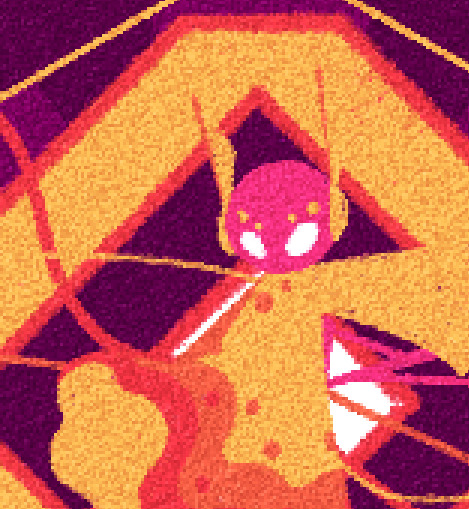
For ArtMonth itself I just draw out a tile canvas using the grid with all the layers broken up- then I just reuse it over and over as needed. There's probably smarter ways to do it, but eh it works
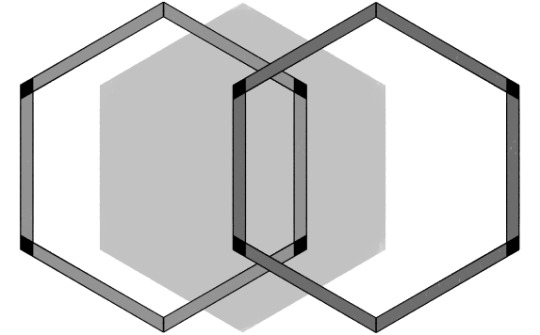
And yeah, theres just two borders. One for the bottom and one for the top, makes it easy to make something that goes 'in and out' of the tiles without having to think to much. Just snip as needed
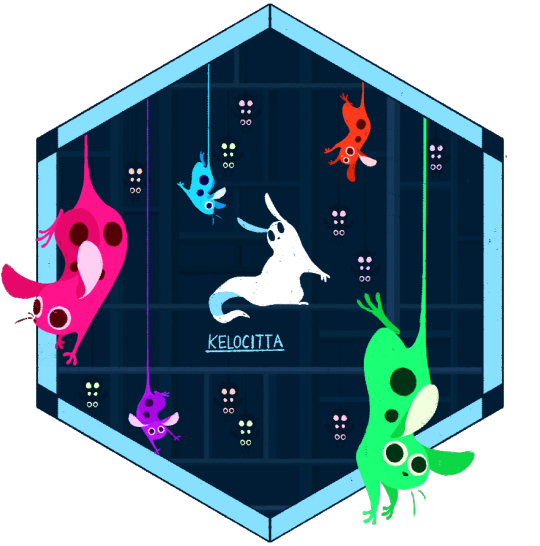
#ask#i feel so bad trying to explain how i draw because not only do i suck at explaining it everything is SO sloppy compared to like#fancier artists. Idk man im basically out here with a pair of scissors a ruler and some paper. I can make a new layer and nothing else#i guess i should also note that i draw on fairly tiny canvases most of the time which means texture stuff can get a little more... strong?#than what i tend to see with huge canvases. Like most of my brush sizes run anywhere from like size 6 to 16 at max and that can be a decent#difference in look. I wouldn't say ones better or worse than the other just that there is a little bit of a different in feel there#artmonth canvases are sub 900 so that twitter keeps them transparent#in particular#ALSO SORRY IF THIS IS LIKE BADLY WRITTEN ITS 4AM#OH YEAH EXTRA NOTE: i have been playing with clip studio. not for like#serious use because i think it has too many things (lol) but i had to grab it for conversion stuff. I have played with a couple of layer#stuff there (the lizards i did recently. not the last one) i have no clue how to use that program or what any of the buttons do but i guess#if you wanna do what ive did with the lizards thats 'hitting random buttons in clip studio' and not SAI
27 notes
·
View notes